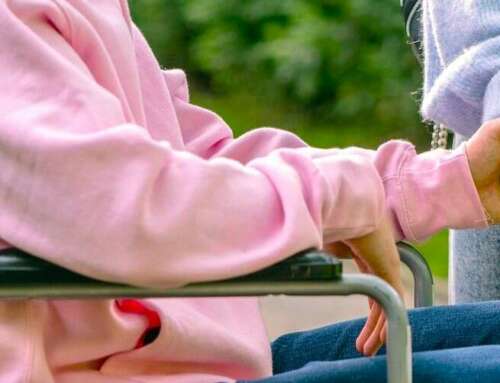You’re walking along the street when a scientist approaches you with a clipboard, an envelope, and a benevolent smile. Curious, you open the envelope: inside is either a $5 or $20 note. The scientist asks you to spend this money by 5pm. You can purchase anything, but it must be for yourself.
You leave, bemused, and the scientist approaches another unwary participant. This person is given the same directions, except that this time, they’re invited to spend the money on someone else.
Which situation do you think would make you the happiest: spending money on yourself or on another?
Contrary to what most people think, researchers at the University of British Columbia found that people were happier when they spent the money on other. What’s more there was no difference in happiness for the people who had $5 to give and the people who had $20 to give. The act of giving, no matter how big or small, makes us feel good.

The benefits of generosity occur not only when giving money but also other gifts. In a study done in Canada and South Africa, people were asked to purchase a “goody bag” (filled with treats like chocolates) either for themselves or for a child in hospital whom they would never meet. Those who bought the goody bag for a sick child experienced significantly more positive emotions than people who bought the bag for themselves suggesting that giving to others is sweet treat in itself (minus the calories!).
Perhaps you don’t have money or a gift to give someone, but you can always give your support to others and, again, this circles back to be good for you with the research showing us that people who are more likely to give social support report reduced symptoms of stress depression.
We should disclose here that we have a vested interest in extolling the benefits of philanthropy. Without John Higgins’ gifts to Believe – the Campaign for the University of Melbourne, the Centre for Positive Psychology would not exist.
But the evidence is strong: the act of giving is a win-win and the findings on this seem to be universal.
When 200,000 people across 136 different countries were surveyed about the effects their charitable actions had upon them, happiness was an outcome in every continent.
There’s more good news to this story. The gifts of giving are not just psychological — they’re also physiological. Giving gets under your skin in the best possible way. Researchers have found giving advice, money, food, support or aid to others is related to reduced blood pressure and enhanced sleep.
Giving has also been linked to lower rates of heart disease and it may even help you live longer. In a recent meta-analysis studying the effects of volunteering in over 49,000 senior citizens, volunteering was found to reduce mortality risk by 24 per cent, even after adjusting for variables such as physical health, age, and gender.

But before you rush out to donate or volunteer in the hope of boosting your happiness, health and life-span, you’ll need to stop to think about your motivation. The paradox — that we happen to think is rather poetic — is that givers may only get these benefits when they’re not seeking them. A study found that giving for self-related reasons did not bring benefits: only when giving was altruistic, driven from compassion towards and connection with others, were individuals more likely to live longer.
Why would giving back be linked to happiness and better health? Psychology Professor Dacher Keltner of UCLA Berkeley believes that evolution shaped us to be altruistic. According to his view, generosity and compassion were primal motivations that evolved in our species in order to band us together.
Strength in numbers only works when we give to others.
By sharing food, sharing tasks, sharing shelters, sharing child minding and sharing the task of killing large prey, our ancestors ensured the survival of our species.
Human nature is constantly shaped by an intricate tension between competition and collaboration, but there’s no doubt that survival of the fittest was supported by survival of the kindest.
Researchers in social psychology and positive psychology are continuing to unravel the mechanisms between giving and wellbeing. However, for now, if a scientist comes over with an envelope full of money and asks you to spend it on yourself, you might want to think about spending it on someone else instead.
Feature Image: Pixabay
Generation Next is a registered charity. Please consider making a tax deductible donation to help us continue to provide mental health and wellbeing resources to the community here.







Leave A Comment